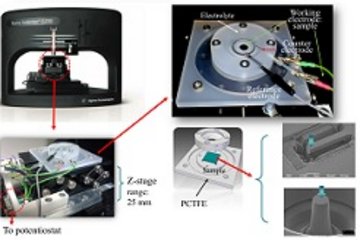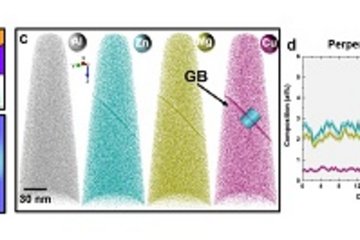All genres
141.
Talk
Modern materials design from first-principles: Recent progress and future prospects. Seminar, Imperial College London, London, UK (2015)
142.
Talk
Ab initio thermodynamics of the CoCrFeMnNi high entropy alloy: Importance of entropy contributions beyond the configurational one. ICAMS Seminar, Ruhr-University Bochum, Bochum, Germany (2015)
143.
Talk
Deformation-driven phase transition in severely cold-deformation pearlitic steel. General Meeting on the Mechanics of Nano-Objects, Marseille, France (2015)
144.
Talk
Random phase approximation up to the melting point: The impact of anharmonicity and non-local many-body effects on the thermodynamics of Au. MISIS Workshop, Moscow, Russia (2015)
145.
Talk
Temperature-dependent coupling of atomic and magnetic degree of freedom from first-principles. Electronic Structure Theory for the Accelerated Design of Structural Materials, Moscow, Russia (2015)
146.
Talk
Supersaturated ferrite in severely cold-drawn pearlitic steel - X-ray diffraction study. Pearlite Workshop, MPI für Eisenforschung GmbH, Düsseldorf, Germany (2015)
147.
Talk
How to Write & defend Competitive ERC Proposals: View of a successful applican. ERC Workshop, Bonn, Bonn, Germany (2015)
148.
Talk
How to Write & defend Competitive ERC Proposals: View of a successful applicant. ERC Workshop, Bonn, Germany (2015)
149.
Talk
Random phase approximation up to the melting point: Impact of anharmonicity and nonlocal many-body effects on the thermodynamics of Au. DPG Spring Meeting 2015, Berlin, Germany (2015)
150.
Talk
Ab initio description of the Ti bcc to omega transition at finite temperatures. DPG-Frühjahrstagung 2015, Berlin, Germany (2015)
151.
Talk
Magnon-Phonon-Coupling in Fe. ICAMS Retreat 2015 , Soest, Germany (2015)
152.
Talk
Ab initio description of the Ti bcc to omega transition at finite temperatures. PTM 2015, International Conference on Solid-Solid Phase Transformations in Inorganic Materials, Whistler, BC, Canada (2015)
153.
Talk
Temperature dependent magnon-phonon coupling. 2nd German-Austrian Workshop, Kirchdorf, Austria (2015)
154.
Talk
Ab initio determination of point defects and derived diffusion properties in metals. International conference on diffusion in materials, DIMAT2014, Münster, Germany (2014)
155.
Talk
Ab initio based understanding of the segregation and diffusion mechanisms of hydrogen in steels. SteelyHydrogen 2014, International conference on hydrogen in steels, Ghent, Belgium (2014)
156.
Talk
Ab initio based understanding of the segregation and diffusion mechanisms of hydrogen in steels. TMS Annual Meeting 2014, San Diego, CA, USA (2014)
157.
Talk
Thermodynamics of materials up to the melting point: The role of anharmonicities. Asia Sweden Meeting on Understanding Functional Materials from Lattice dynamics, Guwahati, India (2014)
158.
Talk
Ab initio based understanding of the segregation and diffusion mechanisms of hydrogen in steels. Workshop on Hydrogen Embrittlement, Düsseldorf, Germany (2014)
159.
Talk
Importance of anharmonic free energy contributions in an ab initio description of the hcp to bcc transition in Ti. DPG-Frühjahrstagung 2014, Dresden, Germany (2014)
160.
Talk
Impact of weak and strong magnetic coupling on the thermodynamics of chromium. DPG spring meeting 2014 , Dresden, Germany (2014)











